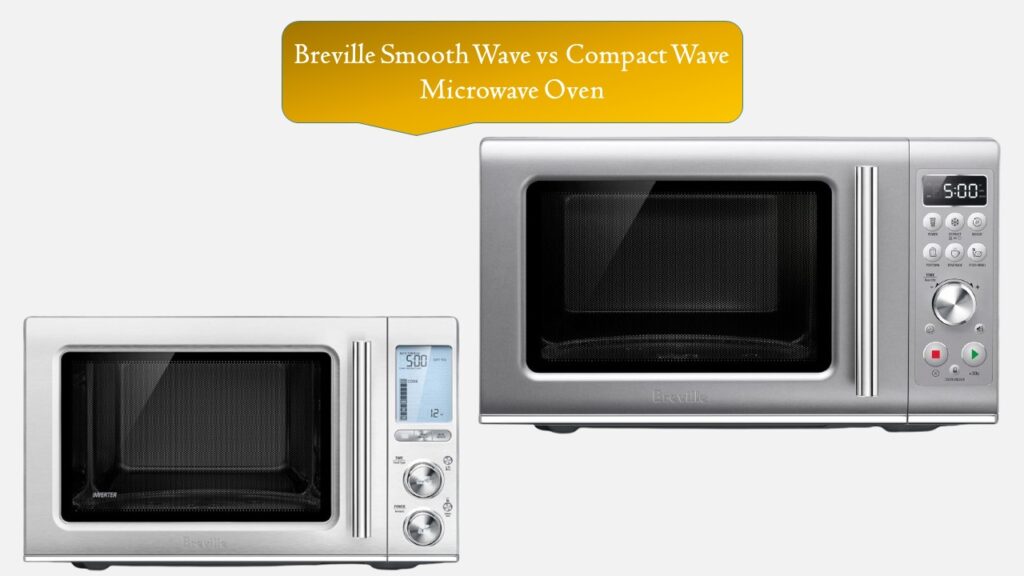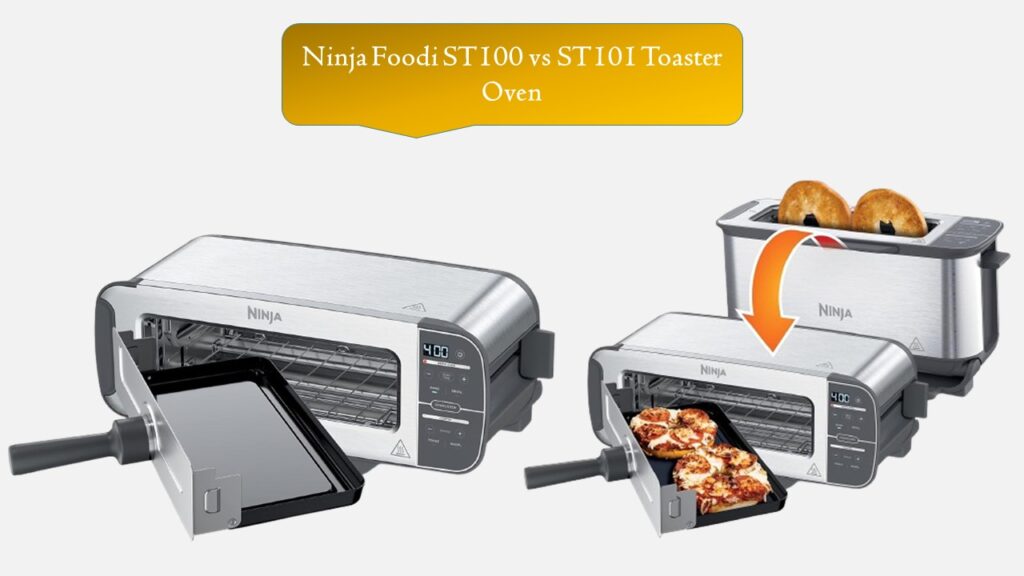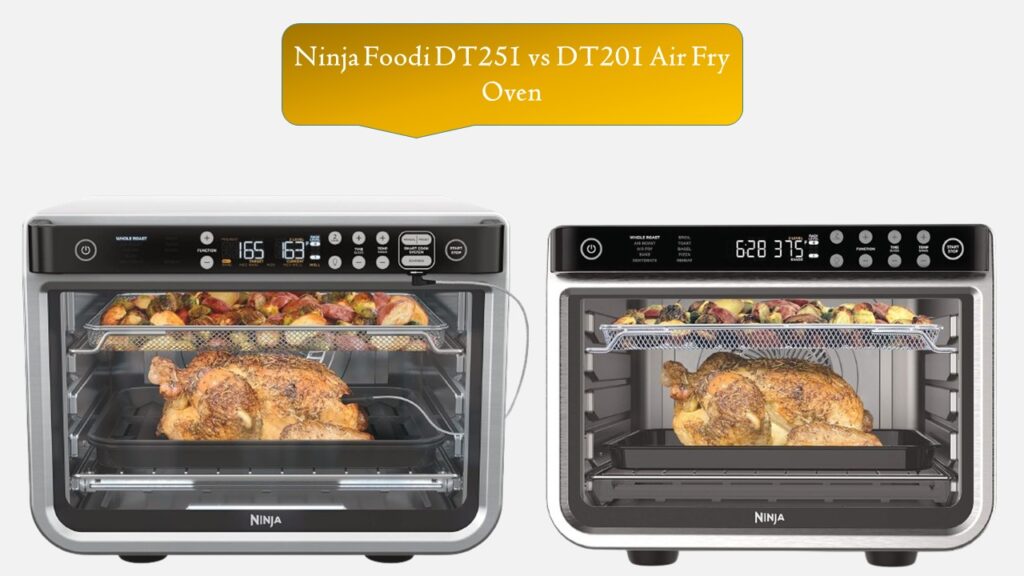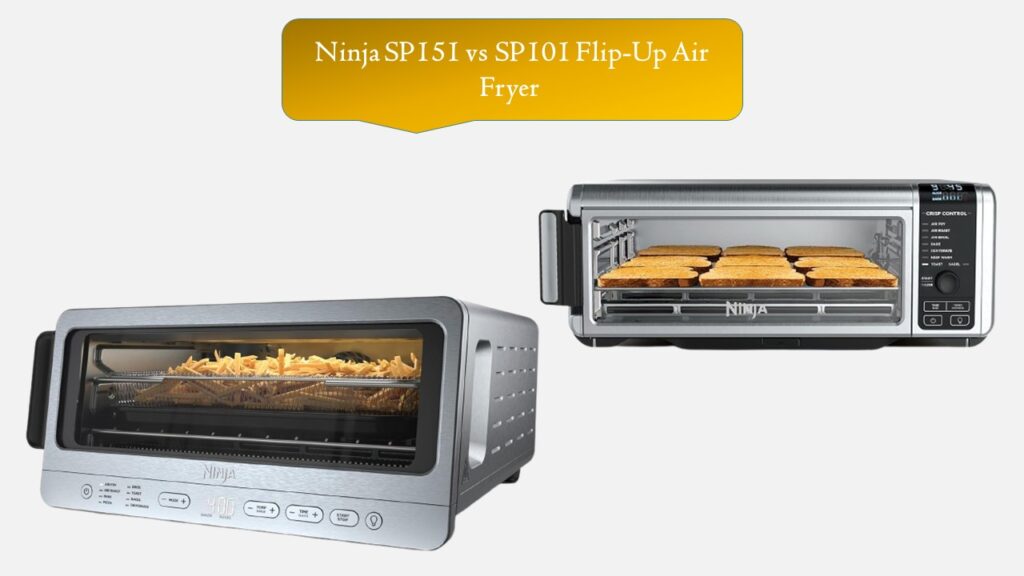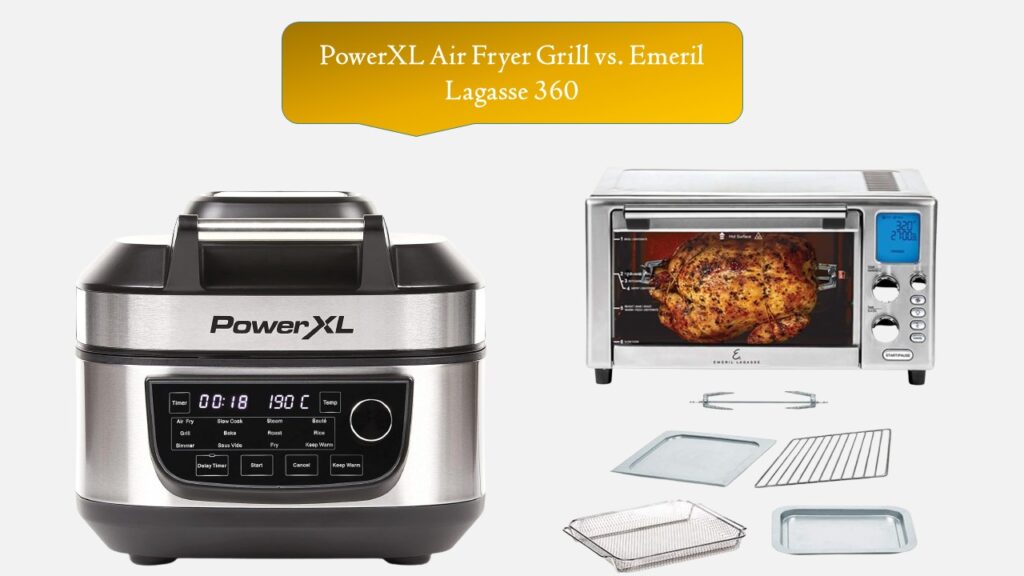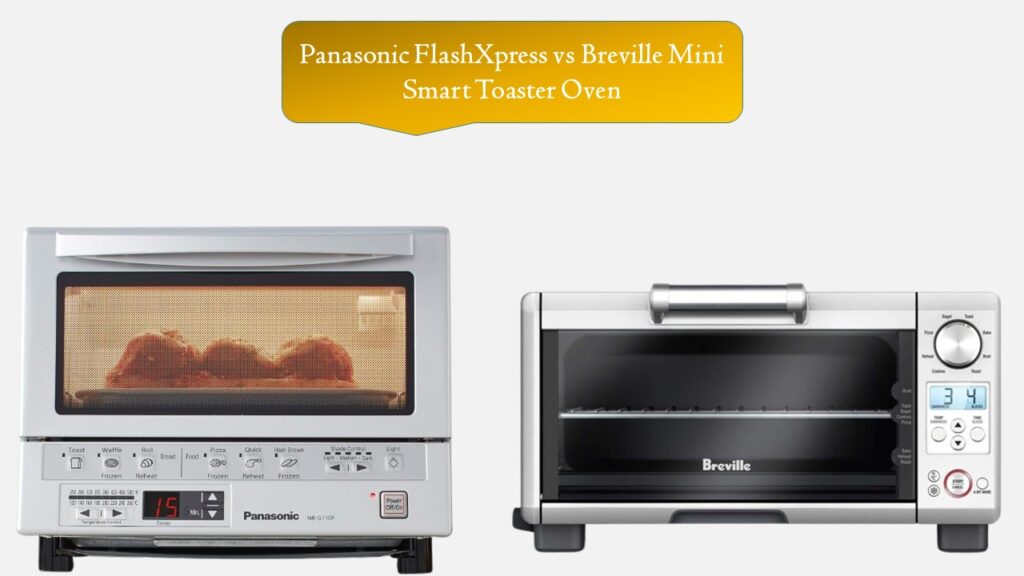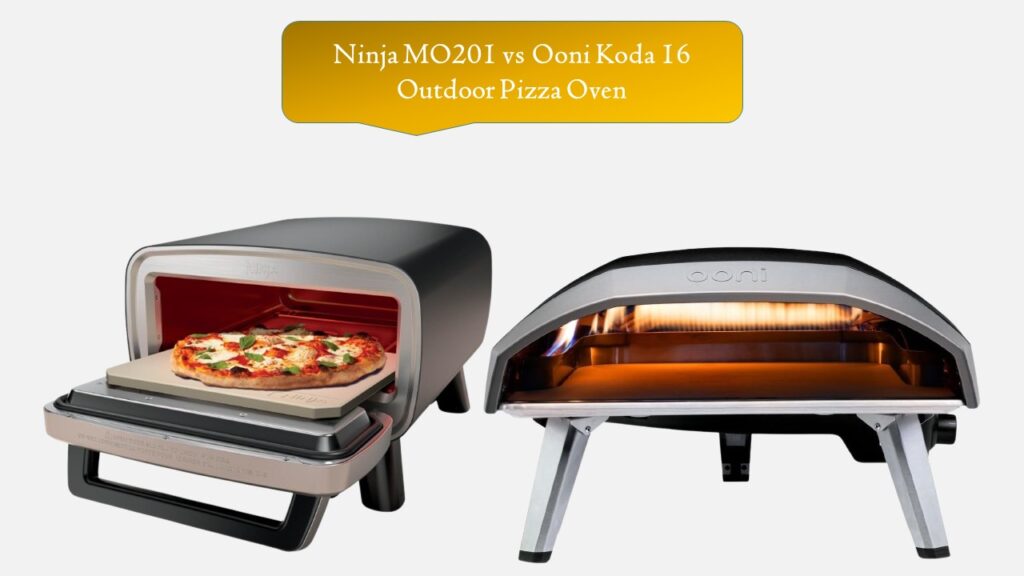Microwaves have come a long way from simply blasting food on high power until it’s hot. Today’s models are smarter, quieter, and more precise, and Breville has been leading that charge. I recently spent time with two of their most talked-about countertop ovens: the Breville Smooth Wave and the Breville Compact Wave.
After weeks of reheating leftovers, melting chocolate, defrosting meats, and even experimenting with delicate sauces, I can share a detailed comparison to help you decide which one fits your kitchen best.
Key Difference in a Nutshell: Breville Smooth Wave vs Compact Wave Microwave Oven
The Smooth Wave is the more advanced, high-powered machine built for cooks who want sensor technology and more presets. The Compact Wave focuses on space-saving convenience and simpler controls at a lower wattage. Both carry Breville’s signature quiet-close door and refined styling, but their size, power, and smart features set them apart.
Quick Comparison Table: Breville Smooth Wave vs Compact Wave Microwave Oven
| Feature | Breville Smooth Wave (BMO850BSS) | Breville Compact Wave (BMO650SIL) |
| Capacity | 1.2 cu. ft. | 0.9 cu. ft. |
| Power | 1250 watts | 900 watts |
| Dimensions | 19″D x 20.43″W x 12.44″H | 17.3″D x 19.1″W x 11.5″H |
| Technology | Sensor iQ, Power Smoothing Inverter, 15 smart presets | Standard reheat/defrost with food menu |
| Door & Noise | 80% quieter soft-close door, 50% quieter operation | 80% quieter soft-close door, 50% quieter operation |
| Special Buttons | Smart Cook, Smart Reheat, Smart Defrost, “A Bit More,” Turntable Off | Popcorn, Beverage, Food Menu, Defrost, Reheat |
| Child Lock | Yes | Yes |
| Finish | Brushed stainless steel | Silver/painted metal housing |
| Best For | Home cooks who value precision and versatility | Small kitchens, dorms, or anyone wanting a simple everyday microwave |
| View Current Price on Amazon | View on Amazon | View on Amazon |
Hands-On Comparative Review
I set both microwaves side by side on my counter for several weeks. From quick weekday meals to weekend baking projects, here’s how they performed in real-world use.
Design and Build Quality
The Smooth Wave immediately looks premium. Its brushed stainless steel finish and slightly larger frame give it a professional vibe. The handle feels solid and the tempered glass door shuts with that signature soft-close “whoosh,” which really is about 80% quieter than a typical microwave door slam.
The Compact Wave is a touch smaller and lighter, making it easier to move or tuck into a tight corner. Its silver painted housing is clean and modern, though it doesn’t have quite the same upscale feel as the Smooth Wave’s stainless steel. Both include Breville’s quiet-close door and subtle control panel lights, so whichever you choose will keep late-night snacking discreet.
Ease of Use
For straightforward reheating, either microwave is simple: pop food inside, press a preset, and go. But the Smooth Wave offers a richer set of options. Inside the door you’ll find a shortcuts panel with one-touch tasks like melting chocolate or softening butter. The “A Bit More” button became my favorite feature—perfect for those times when soup needs just 30 extra seconds.
The Compact Wave keeps things basic. It has dedicated buttons for popcorn, beverage, reheat, and defrost, plus a food menu with a few common items such as potatoes and vegetables. There’s less scrolling and fewer settings, which some users will actually appreciate. If you rarely use anything beyond quick heat, the streamlined interface is appealing.
Cooking Performance
Here’s where power and technology matter. The Smooth Wave’s Sensor iQ and Power Smoothing Inverter deliver incredibly even heating. Reheating pizza came out with a crisp base and hot cheese—no soggy crust or molten center. Defrosting chicken breasts was equally impressive; the edges never overcooked while the center thawed evenly.
The Compact Wave does a fine job for everyday tasks like popcorn or reheating a plate of leftovers. However, its 900 watts mean longer cook times, and I noticed more uneven heating when working with dense foods like lasagna. It’s not a deal breaker, but the difference is noticeable if you’re used to higher wattage.
Special Functions
The Smooth Wave shines with its trio of smart modes—Smart Cook, Smart Reheat, and Smart Defrost—which automatically detect steam and adjust time and power. It feels almost “set and forget,” which is great when multitasking dinner. Turning the turntable off for larger dishes is another perk.
The Compact Wave covers the essentials but skips the advanced sensors. Its food menu is helpful for quick snacks and the soft-close door remains a highlight, but it doesn’t offer the same precision or variety of presets.
Noise Level and Everyday Living
Both models impressed me with their quiet operation. The Smooth Wave is rated to be 50% quieter than a typical microwave, and the Compact Wave matches it. Late-night reheating or early-morning oatmeal never woke the household. The child lock on each machine also adds peace of mind.
Cleaning and Maintenance
Cleaning is simple with either unit. The Smooth Wave’s stainless steel interior wipes down easily, and the removable turntable is sturdy. The Compact Wave’s interior is coated metal and just as easy to clean, though the stainless finish on the Smooth Wave hides fingerprints a bit better.
Breville Smooth Wave Countertop Microwave Oven
Pros:
- 1250 watts for faster, more even cooking
- Sensor iQ with Smart Cook/Reheat/Defrost
- Power Smoothing Inverter prevents overcooking
- 15 smart presets plus “A Bit More” button
- Sleek stainless design with quiet soft-close door
Cons:
- Larger footprint may not fit tight spaces
- Higher price point
Breville Compact Wave Countertop Microwave Oven
Pros:
- Smaller, lighter, perfect for small kitchens or dorms
- Simple controls and intuitive food menu
- Quiet operation with soft-close door
- More budget-friendly
Cons:
- Lower 900-watt power means longer cook times
- Fewer advanced presets and no sensor cooking
- Painted finish feels less premium
Final Verdict: Which Microwave Should You Buy?
After living with both models, I see two distinct audiences.
If you cook frequently, value precision, and want a microwave that can practically think for you, the Breville Smooth Wave is the clear choice. Its sensor technology and 1250 watts of power consistently delivered restaurant-quality reheats and gentle defrosts. I rarely had to guess at times or worry about hot spots.
- The Breville Smooth Wave Microwave takes the guesswork out of cooking with Sensor iQ technology and 15 in-built smart presets, including Smart Cook, Smart...
If your kitchen is small or you just need a reliable, quiet microwave for everyday tasks, the Breville Compact Wave is excellent. It saves counter space, costs less, and still feels more refined than many budget microwaves.
- With a 25L compact footprint and an easy shortcuts and foods menu, the Breville Compact Wave Soft Close Microwave is big on convenience; Designed to precisely...
Personally, I’d choose the Smooth Wave for its versatility and professional feel. But if I lived in a studio apartment or needed a secondary microwave for quick snacks, the Compact Wave would be ideal.

